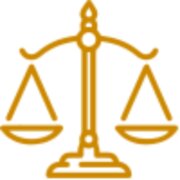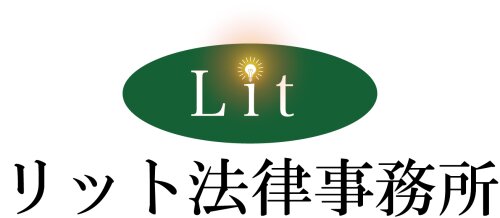Best Transportation Lawyers in Osaka
Share your needs with us, get contacted by law firms.
Free. Takes 2 min.
List of the best lawyers in Osaka, Japan
About Transportation Law in Osaka, Japan
Transportation in Osaka, Japan, is governed by a wide range of national and local laws that regulate the movement of people and goods within the city and to other parts of the country. Osaka is a major metropolitan area with a comprehensive public transport network, including trains, subways, buses, taxis, as well as a busy port and airports. Transportation laws cover areas such as public transit operations, road traffic rules, licensing, vehicle regulations, freight logistics, accident liability, and passenger rights. Both residents and businesses must comply with these regulations to ensure safe and lawful transportation activities within Osaka.
Why You May Need a Lawyer
There are many instances where an individual or business might require legal assistance related to transportation in Osaka. Common situations include:
- Disputes involving traffic accidents, personal injury, or property damage on Osaka’s roads
- Legal issues related to the operation or licensing of commercial vehicles, taxis, or freight services
- Penalties resulting from traffic violations, such as speeding or unauthorized parking
- Matters concerning public transportation, including passenger rights, claims against service providers, or fare disputes
- Business compliance with local transportation regulations and permits
- Import, export, and transit regulations at Osaka's ports and airports
- Issues arising from changes in transportation infrastructure affecting property or business activities
Legal guidance helps ensure your rights are protected, necessary procedures are followed, and you are fully informed of your obligations under the law. Prompt professional assistance can make the difference in resolving disputes efficiently or preventing them entirely.
Local Laws Overview
Osaka’s transportation is primarily regulated under national frameworks, such as the Road Traffic Act and Commercial Vehicle Transportation Business Act, with additional ordinances and enforcement by Osaka Prefecture and the City of Osaka. Key aspects include:
- Road Traffic Regulations: Strict rules govern vehicle speed, road usage, parking, drunk driving, and pedestrian safety. Enforcement is vigilant, particularly in urban and school zones.
- Public Transportation: Service providers such as Osaka Metro, Hanshin, and Hankyu railways must comply with safety, punctuality, and accessibility requirements, along with clear ticketing and fare policies.
- Taxi and Ride-Sharing Services: Operators need specific licenses, vehicle inspections, and are subject to fare regulations. Unauthorized ride-sharing remains limited due to legal restrictions.
- Freight and Logistics: Businesses involved in goods transport are subject to cargo security, vehicle standards, driver qualifications, and environmental regulations.
- Air and Maritime Transport: Kansai International Airport, Osaka International Airport, and the Port of Osaka are regulated by national bodies, with additional customs and safety protocols.
- Bicycle and Micro-Mobility: Osaka promotes cycling, but riders must adhere to local road rules, registration, and parking requirements.
Violations can lead to warnings, fines, license suspension, or, in serious cases, criminal penalties.
Frequently Asked Questions
What should I do if I am involved in a traffic accident in Osaka?
Always call the police and emergency services if needed. Exchange information with other parties and document the scene. You may need to file a report and consult a lawyer, especially in cases of injury or dispute over fault.
Are foreign driver licenses valid in Osaka?
A foreign driver license is not valid on its own in Japan. Most visitors need an International Driving Permit or a certified Japanese translation of a recognized foreign license. Long-term residents typically must obtain a Japanese driver license.
What are the consequences of a traffic violation, such as speeding?
Penalties vary based on the violation's severity, from fines and points on your license to possible suspension or criminal charges for serious offenses like drunk driving.
Can I use ride-hailing apps like Uber or Lyft in Osaka?
Ride-hailing is very limited in Japan due to legal restrictions. Uber and similar services mainly operate as taxi dispatch platforms rather than peer-to-peer ride-sharing.
Is cycling on sidewalks permitted in Osaka?
Generally, cycling on sidewalks is discouraged unless marked otherwise, or if the rider is a child, elderly, or has mobility concerns. Cyclists must follow specified local rules and show consideration for pedestrians.
How do I challenge a parking or traffic ticket?
You can file an objection or pay the fine according to instructions on the ticket. For complex or disputed cases, consulting a lawyer is advisable to understand your options and possible outcomes.
What legal rights do I have as a passenger on public transportation?
You are entitled to safe and reliable service. If injured or delayed due to provider negligence, you may have a claim for compensation under Japanese consumer protection and transportation laws.
Are businesses subject to special regulations for company vehicles in Osaka?
Yes, businesses must comply with strict safety standards, maintenance schedules, driver qualification checks, and, in some cases, emissions or environmental controls for company vehicles.
Can transportation disputes be settled outside of court?
Yes, many disputes are resolved through settlement negotiations, mediation, or administrative complaint procedures before going to court.
Who regulates transport at Osaka’s airports and seaports?
National agencies, such as the Ministry of Land, Infrastructure, Transport and Tourism, oversee airlines and port operations. Local authorities also play a role in enforcing safety and customs regulations.
Additional Resources
For assistance or further information regarding transportation in Osaka, the following resources may be helpful:
- Osaka Prefectural Police: Handles traffic regulation enforcement, accident reports, and lost property on public transport.
- Ministry of Land, Infrastructure, Transport and Tourism (MLIT): Responsible for national transportation policies, licensing, and safety standards.
- Osaka Transportation Bureau: Manages public transportation networks, including Osaka Metro and city buses.
- Japan Legal Support Center (Houterasu): Offers information and referrals for legal consultation, including transportation matters.
- Osaka Bar Association: Can connect you with qualified local attorneys experienced in transportation law.
Next Steps
If you need legal help regarding any transportation issue in Osaka, consider the following actions:
- Document your issue in detail, including dates, parties involved, and any evidence
- Contact the relevant authority, such as police for accidents or the transportation bureau for public transit matters
- Seek professional legal advice, especially if your case involves injury, liability, employment, or business compliance
- Consult local resources or organizations listed above for guidance and support
- Act promptly to preserve your rights and comply with any deadlines for filing claims or appeals
Engaging an experienced lawyer can help you navigate the legal system, understand your options, and achieve a fair outcome. Do not hesitate to reach out for professional assistance if you are unfamiliar with Japanese transportation law or face significant consequences.
Lawzana helps you find the best lawyers and law firms in Osaka through a curated and pre-screened list of qualified legal professionals. Our platform offers rankings and detailed profiles of attorneys and law firms, allowing you to compare based on practice areas, including Transportation, experience, and client feedback.
Each profile includes a description of the firm's areas of practice, client reviews, team members and partners, year of establishment, spoken languages, office locations, contact information, social media presence, and any published articles or resources. Most firms on our platform speak English and are experienced in both local and international legal matters.
Get a quote from top-rated law firms in Osaka, Japan — quickly, securely, and without unnecessary hassle.
Disclaimer:
The information provided on this page is for general informational purposes only and does not constitute legal advice. While we strive to ensure the accuracy and relevance of the content, legal information may change over time, and interpretations of the law can vary. You should always consult with a qualified legal professional for advice specific to your situation.
We disclaim all liability for actions taken or not taken based on the content of this page. If you believe any information is incorrect or outdated, please contact us, and we will review and update it where appropriate.















